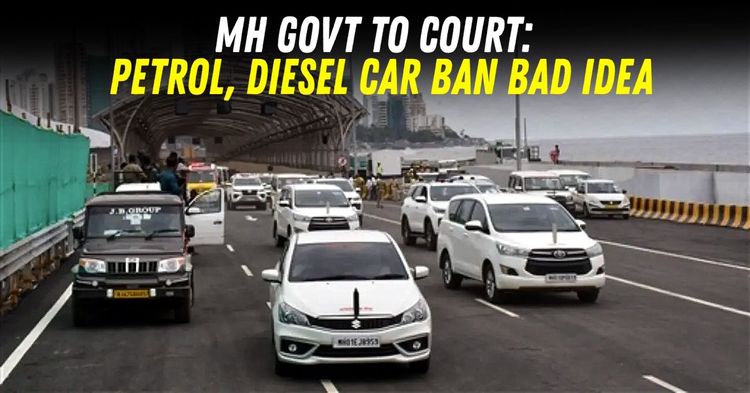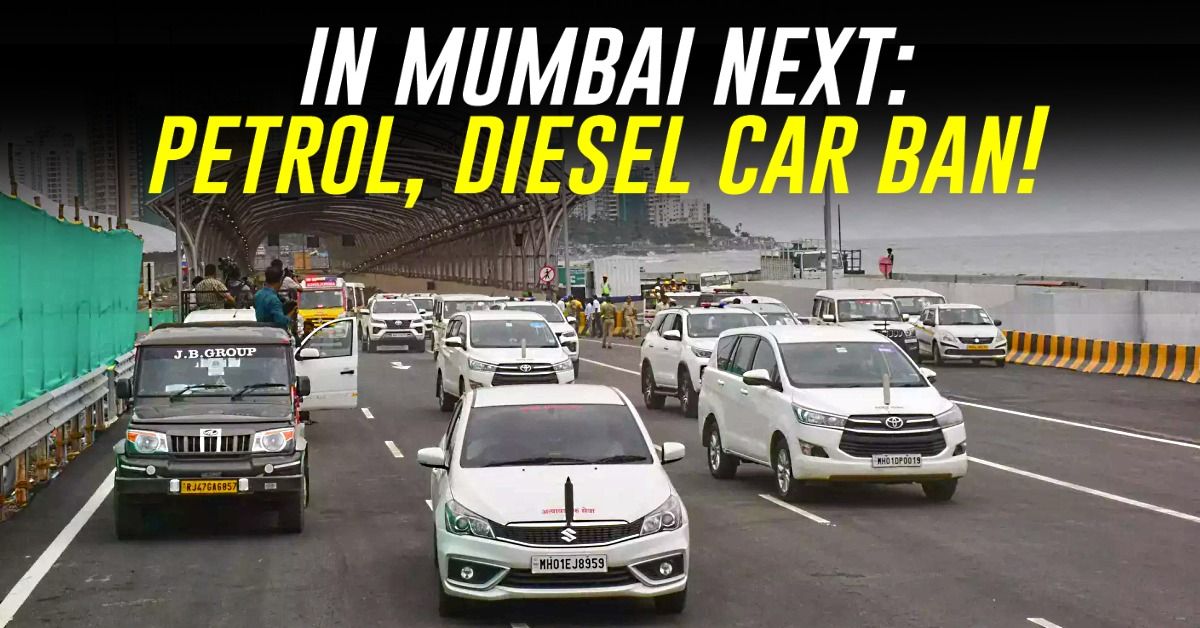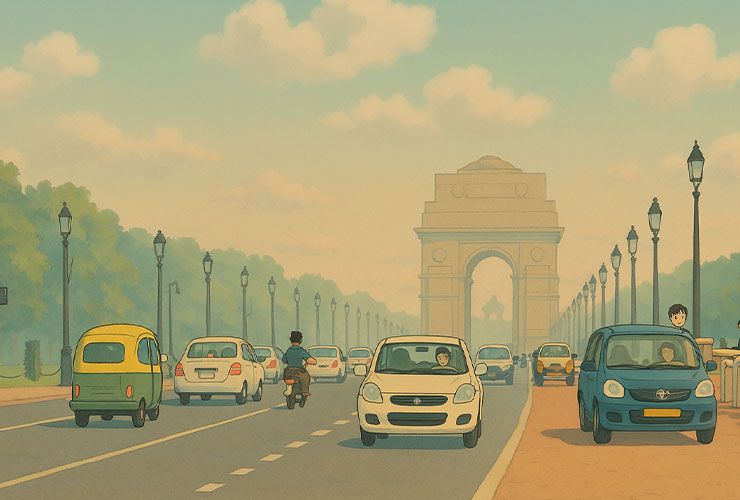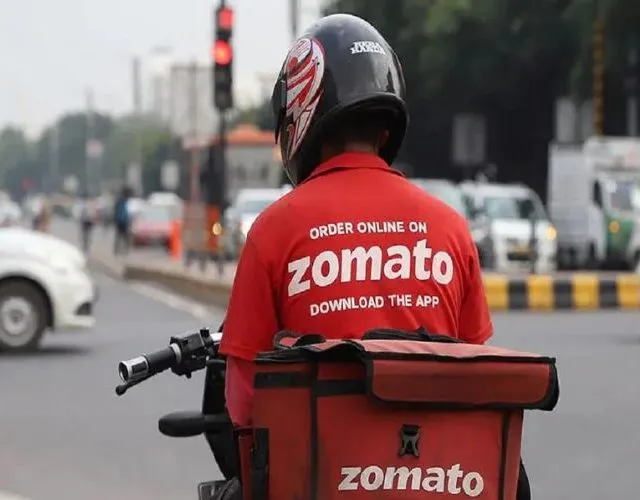Govt To High Court: Phasing Out Petrol And Diesel Cars Will Mess Up The Economy


Govt Tells Court: Sudden Ban on Petrol and Diesel Cars Could Derail Economy
The Indian government has firmly opposed a proposal to ban petrol and diesel vehicles in Mumbai, cautioning the Bombay High Court that such a step could wreak havoc on the economy. The warning comes amid intensifying pressure to address Mumbai’s hazardous air pollution, with the transport sector contributing nearly 30% of the city’s particulate emissions.

In January 2025, the Bombay High Court directed the Maharashtra government to explore a complete transition from fossil fuel-powered vehicles to CNG and electric alternatives within three months. But the state government’s response, filed in April, paints a worrying picture. Officials say a sudden shift would disrupt supply chains, displace workers, and cripple commercial activity overnight. Over 60% of Mumbai’s 4.5 million registered vehicles still run on petrol or diesel, including nearly 90% of the city’s commercial transport vehicles. Taking these off the roads, they warn, could bring Mumbai’s ports, markets, and gig economy to a standstill.
Mumbai’s economy, the affidavit highlights, is closely linked to neighbouring states. Diesel trucks from Gujarat and Karnataka transport almost 80% of the city’s food, fuel, and construction supplies. Any abrupt restriction on their entry could send prices of essentials soaring and severely impact small businesses. Auto dealerships are also sounding the alarm, warning of mass layoffs. Maharashtra’s automobile sector alone employs over 1.2 million people directly.

This isn’t the first time an Indian city has grappled with a shift away from fossil fuels. Delhi introduced a ban on 10-year-old diesel cars back in 2015, a move that left more than 50,000 car owners with fast-depreciating vehicles and few alternatives. While pollution levels remained stubbornly high, the policy also exposed serious flaws in scrappage infrastructure. Mumbai risks repeating that experience. The city currently has just 12 CNG stations – nowhere near enough to meet the potential demand. Electric charging stations, meanwhile, remain limited to a few upscale neighbourhoods.
Conflicting signals from the central government add to the uncertainty. While Union Minister Nitin Gadkari has publicly urged carmakers to “say bye-bye to diesel”, the Ministry of Road Transport and Highways has yet to lay out clear deadlines or policies. Automakers say this lack of clarity makes long-term planning difficult. Maruti Suzuki, for instance, has put the brakes on a proposed diesel engine plant, even though over a fifth of its sales still come from diesel vehicles.

For many Mumbai residents, the implications are personal and costly. “I bought a diesel SUV for ₹18 lakh last year,” says Andheri resident Karan Mehta. “Now I’m staring at a 50% resale loss if the ban comes through. And there’s no support for switching to an EV.”

The informal sector faces an even steeper uphill battle. Over 1.5 lakh delivery agents in Mumbai rely on affordable petrol-powered two-wheelers, earning ₹500 to ₹800 a day. Upgrading to electric would mean doubling their loan EMIs. “Half my income would go in repayments,” says Zomato delivery partner Ramesh Yadav. “I’ll have no choice but to go back to my village.”
The expert committee appointed by the court is now expected to submit its findings by June 2025. Early indications suggest the panel is leaning towards a phased approach rather than an outright ban. Likely recommendations include:
• Immediate restrictions on 15-year-old diesel commercial vehicles
• CNG and EV mandates for public transport vehicles such as taxis and buses by 2027
• Gradual incentives to help private vehicle owners transition
However, critics argue that such measures are too slow, pointing to Kolkata’s more aggressive push that helped reduce PM2.5 levels by 22% after it replaced half of its diesel buses. But Mumbai’s challenges are different. Almost 43% of the city’s roads are too narrow for electric buses, and many EV charging points are vulnerable to flooding during the monsoons.
As the Bombay High Court continues to weigh its options, the spotlight is now on whether Mumbai can take a balanced route — one that improves air quality without paralysing its economy. Delhi’s own transition triggered a ₹7,000 crore EV stimulus in 2023. Mumbai may need similarly bold and creative solutions to achieve a cleaner future without leaving millions behind.